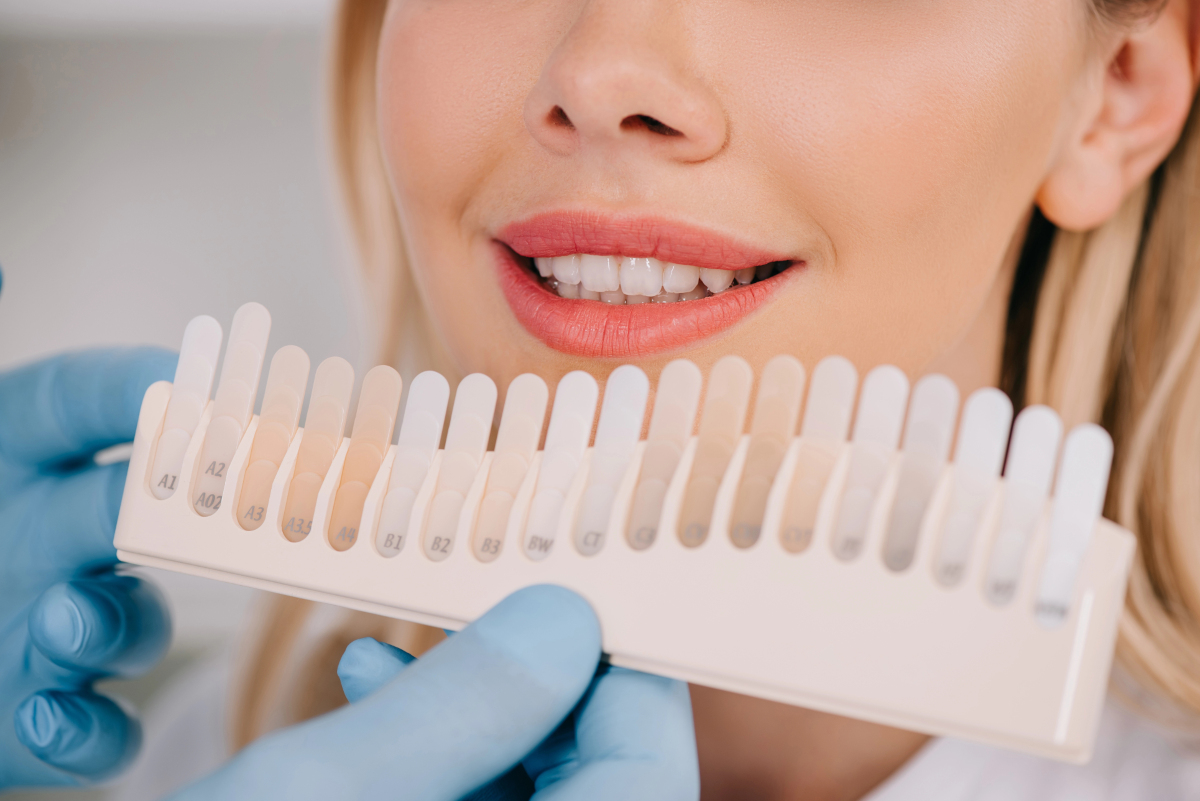Contents

Teeth Whitening: Cost, Insurance Coverage, and Risks
Everything you need to know about teeth whitening: techniques, costs, insurance coverage, risks, and tips for a bright, safe smile.
What Is Teeth Whitening?
Teeth whitening is a cosmetic procedure that aims to lighten the shade of teeth, remove stains, and correct discolorations using a whitening agent. It is not a therapeutic act.
This technique can be done at home with a kit or at the dentist's office for a more effective and lasting result. Professional whitening uses a gel activated by a special light, which can lighten the enamel and dentin by up to 8 shades in a single session of 30 to 90 minutes.
The price and potential insurance coverage are key elements to know before starting. Dental insurance typically does not cover this cosmetic procedure. Therefore, the patient is responsible for the full cost, unless they have a dental plan with specific cosmetic benefits.
| Criteria | Information |
|---|---|
| Average Price in the US | $650 ($400 to $1,200) |
| Average Price in Mexico | $250 |
| Average Price in Costa Rica | $300 |
| Insurance Coverage | Rarely, depends on the plan |
| Who is it for? | Adults with healthy teeth, excluding pregnant women |
Average Cost of Different Whitening Techniques
There are several whitening methods, each with its specifics and cost:
- Take-home trays, done at home under the dentist's supervision. Custom-made trays filled with whitening gel are worn for several hours a day.
- In-office laser whitening, performed at the dental office. A powerful light is used for a quick, deep, and lasting result.
- Over-the-counter products, which remove surface stains. Ideal for minor yellowing and localized discolorations.
| Technique | Description | Average Price |
|---|---|---|
| Take-Home Trays | Custom-fitted trays + whitening gel. Worn for a few hours at home. | $300 - $600 |
| In-Office Laser Whitening | Hydrogen peroxide-based gel activated by a laser or light. | $500 to $1,200 |
| Over-the-Counter Kits | For yellowing or localized stains. Includes strips, pens, etc. | $20 to $100 |
Coverage by Dental Insurance
Even though most insurance plans do not cover whitening, some dental plans may offer partial coverage for non-covered cosmetic treatments. You must check the terms of your contract.
Before starting the treatment, it is best to request a quote from the dentist and a pre-authorization from your insurance provider, especially for costly procedures.
Why Consider Whitening?
Teeth whitening meets several expectations:
- Improve the aesthetics and brightness of the smile
- Harmonize the color of the teeth
- Gain confidence and self-esteem
- Project a good image, especially professionally
- Correct discolorations due to certain medications
Duration and Maintenance of Results
The whitening effect is not permanent and generally fades after 1 to 3 years, depending on the person and their lifestyle.
Touch-ups every 6 months help to prolong the result.
Several factors contribute to tooth yellowing: aging, smoking, poor oral hygiene, consumption of staining drinks (tea, coffee, wine, sodas...).
To preserve the brightness of your whitened teeth, it is essential to:
- Maintain good dental hygiene (regular brushing, interdental brushes...)
- See your dentist regularly for check-ups and cleanings
- Rinse your mouth after consuming staining beverages
Risks and Contraindications
Numerous studies show that teeth whitening is safe when performed under the supervision of a dentist. However, there are contraindications:
- Pregnant or breastfeeding women
- Individuals with gum inflammation, hypersensitivity, abscesses, cavities, periodontitis...
- Wearers of orthodontic appliances (risk of uneven discoloration)
- Teeth with lesions
The product can penetrate deep and cause problems (inflammation, infections...) if contraindications exist.
Hence the importance of consulting a dentist beforehand.
Although whitening is painless, some temporary side effects may occur:
- Tooth hypersensitivity (to hot, cold, air)
- Gum irritation from the trays
- Gum sores if too much gel is used in the trays
- Throat irritation if the gel is swallowed
- Discomfort in the jaw joint from wearing trays
Age Requirements and Qualified Practitioners
It is recommended to be at least 18 years old and have permanent teeth to consider whitening. Beyond that, it is possible at any age, except in cases of pregnancy or dental problems.
Only dentists are legally authorized to perform professional teeth whitening. It is best to choose a dental office for greater safety.
